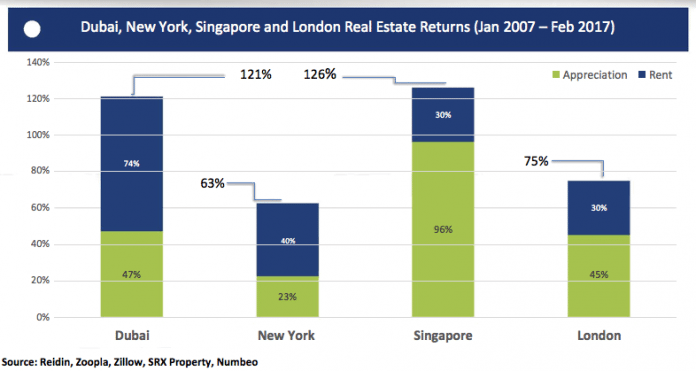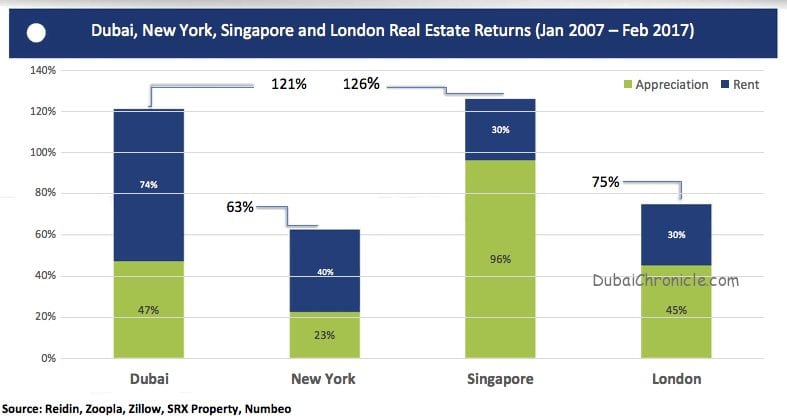
Nearly 10 years have passed since the World Financial Crisis, which commenced with a collapse in the sub-prime mortgage market in the USA. It later developed into a full blown international banking crisis causing equities, commodities and real estate assets to fall by more than 50%.
A total return analysis (appreciation and rents) of real estate assets since the world financial crisis in major cities reveals that the returns per annum ranged between 5% to 11%. The findings have been recently published in the latest REIDIN report.
Dubai and Singapore real estate assets have returned more than 120% in the form of rents and capital gains over the last decade, whereas London and New York have returned 75% and 63%. The bulk of returns in New York and Dubai have been in the form of rental returns, whereas Singapore has been in capital gains.

Almost a decade after the world witnessed the worst global recession in 2007, Dubai and Singapore emerge as the top winners in terms of investor returns, closely behind the much riskier Nasdaq technology weighted index. This attests to Dubai’s growing popularity in terms of being the preferred destination for real estate investments.
A further look into Dubai real estate assets compared to Abu Dhabi’s, reveals that since 2009 the former has returned more than three times than the latter. Although, the rental returned of both cities were close to parity, Dubai experienced superior capital gains. The difference in the capital gains terms was due to a number of factors, including but not limited to, the differential launch prices, skewness towards the luxury segment in terms of Abu Dhabi and a wider number and quantum of community and unit launches in the case of Dubai.
An overview of the returns of different investment classes since the WFC, reveals that the top three gainers have been Nasdaq, followed by Singapore and Dubai real estate assets. This value analysis reveals that Dubai and Singapore real estate have been the most lucrative avenues for investors, inferior only to the riskier Nasdaq composite portfolio. It is therefore of little surprise that Dubai has become a magnet for international investors for its real estate, and monetary inflows have continued to increase steadily over the last decade.




































